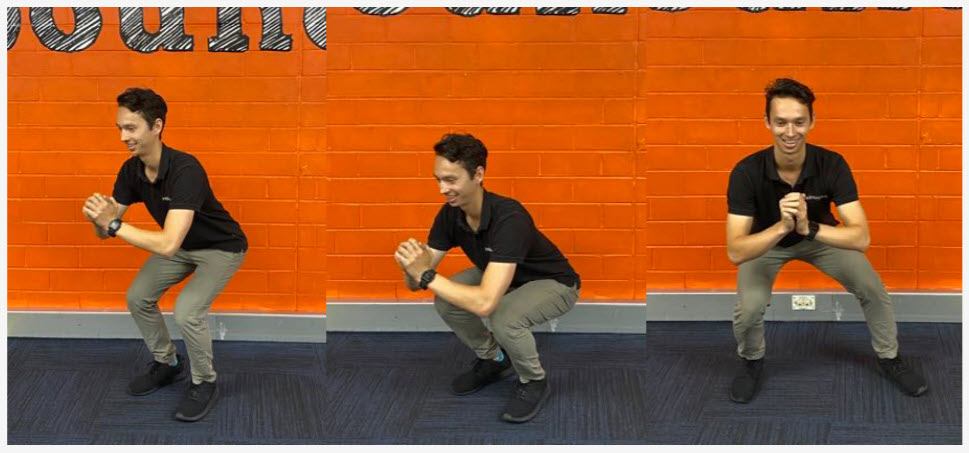
Medical Emergencies
In the case of a medical emergency, please follow the Doctor’s ABCD steps (DRSABCD).
Stay healthy and have fun
- Always wear supportive, non-marking tennis or indoor court shoes when playing indoors and supportive tennis or outdoor court shoes when playing outdoors … NO sandals, thongs, around-the-house or running shoes. More about shoes.
- You can wear anything that is comfortable and appropriate, but DEFINITELY NO LONG FLOWING DRESSES AS THEY CAN EASILY BE TRIPPED OVER. More about suitable clothing.
- Give any existing injury plenty of time and rest to heal before you resume play.
- Be aware of any obstacles in the area that you might run into or trip over, such as benches or gym equipment.
- Check with your doctor regarding exercise and any physical conditions that exist or may have previously existed.
- Warm up before you play. The main purpose of a warm up period is to raise the general body temperature prior to playing. When the body temperature is raised it will increase your ability to perform the stretching exercises. The warm up period should be approximately 5 minutes.
- Stretch after warming up. This will increase your flexibility, which allows for better performance and decreases the possibility of injuries.

Click here to view a pickleball Warm Up Program by Archie Richards of Rebound Health (PDF)
Safety on the Court
- If you hit the ball into another court, immediately call out “BALL ON COURT”. If you are the receiving server in the court in which the ball needs to be returned, put your paddle up in the air to get the attention of the player returning the ball.
- If a ball rolls onto your court, call out “BALL”. If you hear “BALL” called from another court, STOP PLAY AT ONCE! When attempting to return the ball to the appropriate court/server, don’t swat or kick the ball back. Pick it up and return it with control.
- If anything falls on the court quickly remove it.
- If you are near your partner with an overhead slam opportunity where you may hit them, stop play. Let the ball drop. Lose the point. Stay conscious of where your partner is at all times. You and your partner should be calling “MINE” or “YOURS” before you hit the ball.
- Never run backwards! Instead, turn around and go back to get to the ball. There are multiple dangers in running backwards. It is easy to trip and fall, banging your head on the court, or hurting your wrist or arm.
- Don’t dive for balls.
- Make sure you stay well hydrated.
- Protective eyewear is highly recommended. See “Safety Glasses”.
Etiquette
- Always exhibit good sportsmanship when playing or observing others. Refusing to play with a less experienced player is considered unsportsmanlike.
- Always accept decisions made by the team on the receiving side.
- If you are in doubt as to whether a ball on your side is in or out, always call it in.
- The server must call out the score loudly and clearly before serving.
- When returning a ball to your opponent for service, make eye contact and toss, roll, or gently hit the ball over. Do not whack the ball at someone, especially if their back is turned. If the ball is on the ground behind someone and they don’t see it, alert them immediately.
- Only provide coaching advice when asked. Be wary of coaching other players on the pickleball court, as they may not want to hear any unsolicited advice.
- If you step into the kitchen on a volley, or if your partner does, call it on yourself.
- If you are crossing an active court to get onto a vacant court or to leave a court, wait until their current point is over. This is both an etiquette and safety issue.
- Do not walk behind a court when play is on. You could be run into by an unsuspecting player chasing after a ball.
- Please assist with the setting up and taking down of nets whenever possible.
Line Calling Code of Ethics
- Players will call the lines on their side of the court ONLY.
- Spectators should not be consulted on any line calls.
- All “let” or “out” calls must be made instantly, otherwise the ball is presumed in and still in play.
- In doubles play, if one player calls the ball out and the partner calls it in, then doubt exists and the ball must be declared in.
- Line calls should be promptly signalled by hand or voice, regardless of how obvious they may seem.
